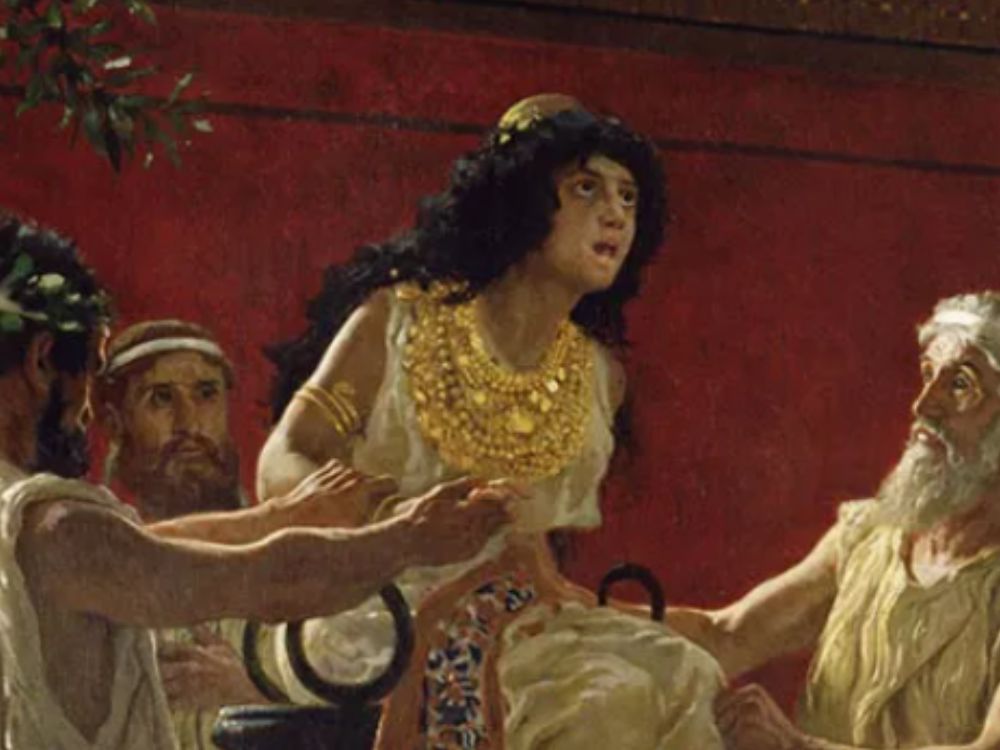There’s a great lack of curiosity/wonder today. We are so damn certain. Our politics exasperates it, our technology facilitates it, and our education doesn’t seem to be aware that this is a problem.
Jason Aldean’s Try That in a Small Town sparked an outrage du jour recently and a short-lived cultural debate about the virtues of urban or rural life in America. No doubt, their respective politics, aesthetics, musical tastes, religious outlook, food preferences, and moral emphases are often quite different. But they are quite the same in one respect: they both have it pretty well figured out. When it comes to the big questions of human life, their world is still very much closed and decided.
Socrates made a sport of uprooting certainty among the Athenian men of his day most reputed to be wise. Bewildered by the Oracle of Delphi’s claim that there was no one wiser than he, Socrates went to the “wisest” politicians, poets, and artisans to inquire about wisdom. This is what he found:
“What can the god mean? and what is the interpretation of his riddle? for I know that I have no wisdom, small or great. What then can he mean when he says that I am the wisest of men? And yet he is a god, and cannot lie; that would be against his nature. After long consideration, I thought of a method of trying the question. I reflected that if I could only find a man wiser than myself, then I might go to the god with a refutation in my hand. I should say to him, ‘Here is a man who is wiser than I am; but you said that I was the wisest.’
Accordingly I went to one who had the reputation of wisdom, and observed him–his name I need not mention; he was a politician whom I selected for examination–and the result was as follows: When I began to talk with him, I could not help thinking that he was not really wise, although he was thought wise by many, and still wiser by himself; and thereupon I tried to explain to him that he thought himself wise, but was not really wise; and the consequence was that he hated me, and his enmity was shared by several who were present and heard me. So I left him, saying to myself, as I went away: Well, although I do not suppose that either of us knows anything really beautiful and good, I am better off than he is,– for he knows nothing, and thinks that he knows; I neither know nor think that I know. In this latter particular, then, I seem to have slightly the advantage of him. Then I went to another who had still higher pretensions to wisdom, and my conclusion was exactly the same. Whereupon I made another enemy of him, and of many others besides him.”
It is worth pointing out this recounting is from Plato’s Apology, where Socrates is on trial for corrupting the youth. He was ultimately sentenced to death. Not only are we so damn certain, but human history is filled with examples of what happens when that certainty is challenged. It’s an intellectual problem for the individual, to be sure, but it is most certainly also a profound political problem.
The ubiquity of certainty implies there is something about it rooted in our human nature. It presents itself as an urge. We are enticed toward it. The thought of obtaining certainty is intoxicating, so much so that we can be easily seduced into thinking we’ve arrived prematurely. It’s as if there is a very human drive to be like a god. Adam’s sin, in a sense, was premature certainty. He was driven by his nature. Made in the image and likeness of God, all of his being was compelling him toward being like God.
To know is the ultimate aim of our rational activity. Ancient philosophers argue that our chief happiness is found in contemplation, an attempt at uniting that which is highest in us – our minds – with reality. As such, engagement in this activity is the most human thing. It’s an activity, not an attainment. And the more I’m engaged in it, the more it seems to push beyond ourselves. We appear to be driven by something we can’t obtain. At least not yet.
In our day, the very disciplines meant to inspire wonder, curiosity, and awe are too often the biggest contributors to premature certainty. Religion, science, and philosophy ought to be the antidotes, but in many ways these have devolved into a destructive dogmatism.
If Socrates is correct that wisdom is found in a sort of recognition of our lack of knowledge and a corresponding openness, it’s worth reflecting on how to foster this discipline of confrontation with our own limitations.
I’m told that less than 0.1% of the population has ever run a half marathon, so when I finished my second one in February, I had every reason to consider myself strong, healthy, and in good physical shape. But when I returned to some workout routines I had neglected during my running training, I very quickly was confronted with my own physical limitations. Physical pride is very quickly and frequently humbled by a pull-up bar, a set of burpees, or a run.
What humbles us intellectually? Books, particularly hard ones. Discussions with others. Confronting the brilliance of others. Daily engagement with things beyond ourselves. Be OK with ambiguity in yourself and others. Learn to fall in love with the questions – the pursuit of truth.
All this is precisely why we Drink and Think.


